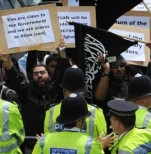 In Munim Abdul and Others v Director of Public Prosecutions [2011] EWHC 247 (Admin) the High Court ruled that prosecution of a group of people who had shouted slogans, including, “burn in hell”, “baby killers” and “rapists” at a parade of British soldiers, was not a breach of their right to freedom of expression, protected by Article 10 of the European Convention on Human Rights.
In Munim Abdul and Others v Director of Public Prosecutions [2011] EWHC 247 (Admin) the High Court ruled that prosecution of a group of people who had shouted slogans, including, “burn in hell”, “baby killers” and “rapists” at a parade of British soldiers, was not a breach of their right to freedom of expression, protected by Article 10 of the European Convention on Human Rights.
Irish Govt pushing through ‘illegal downloads’ changes to copyright law – Siliconrepublic.com
In its final days, the Government is believed to be rushing through a statutory instrument that will amend the existing Copyright Act and which will give judges the power to grant injunctions against ISPs in relation to copyright infringement cases.
The move is believed to stem from October’s court case between the music industry (Warner, Sony, Universal and EMI) and UPC in which the judge pointed to a key gap in Irish copyright laws.
Siliconrepublic.com has learned that the Department of Enterprise Trade and Innovation and the Department of Communications have tabled the legislation which is currently in the hands of the parliamentary draftsman with a view to passing it by Friday.
